
(Review archived from April 2, 2023)
I have a soft spot for the ubiquitous WWII FPS for largely the same reason (among others) that I enjoy the Assassin’s Creed series; the gamification of historical events is something that appeals to me. And it tends to work both ways really. Having some fore-knowledge of the historical events portrayed in a game can increase my enjoyment of the game, and conversely games of this nature can spark my interest in learning more about the historical subject matter. That said … I don’t always relish the notion of providing an endgame summation of WWII first person shooters in particular. Whereas the AC series portrays ever-shifting historical periods and locales, the WWII setting can by its nature only cover a finite and often well known set of events. My late great Grandpa Maynard fought in Europe during WWII, but was always pretty tight lipped about his experiences over there. Late in his life he confided in me, “I’ve been blessed with a fulfilling and rewarding life. I’ve borne witness to the greatest economic depression our country has known and lived to see us walk on the moon. I raised an incredible family and worked my ass off to have a successful career. But out of all of it, the only thing most people ever ask me about are those damned two years I spent in Europe!” So yeah … WWII games are a bit like that, continually rehashing those damned few years in Europe … or they certainly were at the time that Medal of Honor: Underground was released at any rate. Later on, even in the Medal of Honor series itself, we’d see a handful of WWII games set in the Pacific theater, but even today WWII games seem to focus most intently on the European campaign (with a smattering of North Africa for good measure). So differentiating and summarizing entries in this genre can start to feel a bit Sisyphean, storming that same beach over … and over again.*
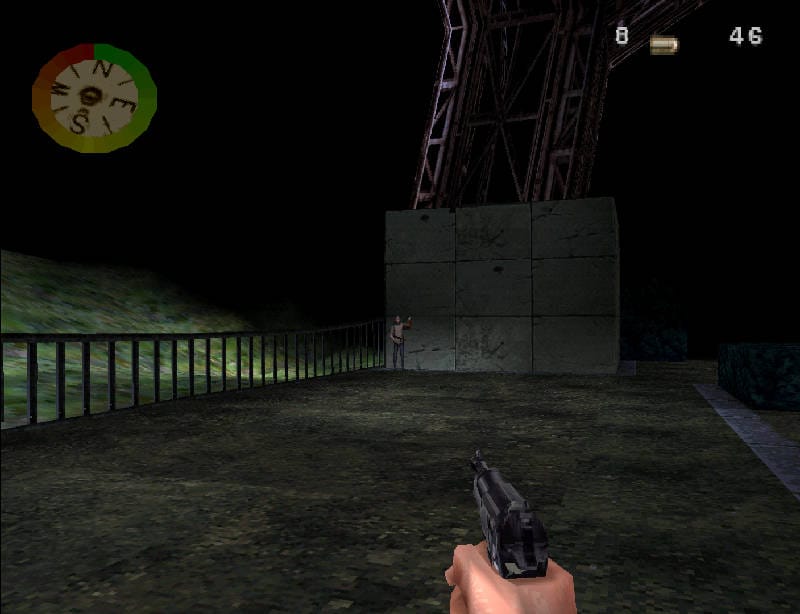
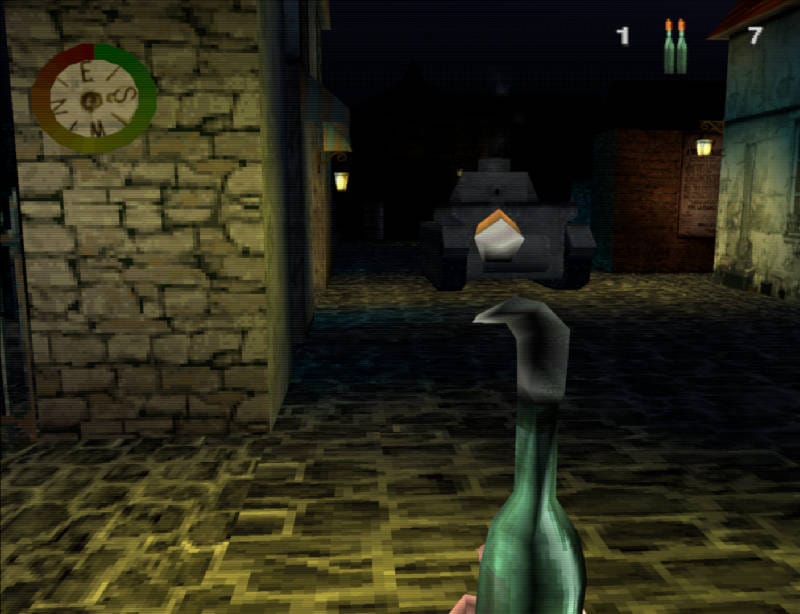
Having said all of that, while the set dressing in Medal of Honor: Underground is largely familiar territory, it really does shake up the formula a bit in terms of thematic content. Here you are not stepping into the combat boots of some fresh faced GI or hardened grunt, but rather you are Manon Batiste, an operative within the French Resistance movement. In this sense you can see MoHU really was somewhat forward thinking in what it was attempting to do. Your protagonist is a silent, faceless female rather than the bog standard silent, faceless male soldier. Rather than consisting of purely straight forward combat missions, you will undertake several stealth based missions … that inevitably dissolve into straight forward combat missions before they’re said and done. And so on. I’m poking fun just a bit, but you really can see a respectable effort being made to keep the formula fresh, and all the trappings of an underground operative in the French Resistance does make for a cool twist. And as you progress further into the game, things take a marked turn for the weird which is something I can appreciate regardless of genre or era. One level has you infiltrating a German castle stronghold in the mountains which is hard not to read as a tip of the hat to some Wolfenstein influence and inspiration. Epilogue levels dial up the ridiculousness to 11 where among other things you’ll engage with several undead soldiers. To my knowledge that makes MoHU one of the very first WWII – zombie shooter crossovers. So again, it’s interesting to see how it’s fairly forward thinking in what it was doing.
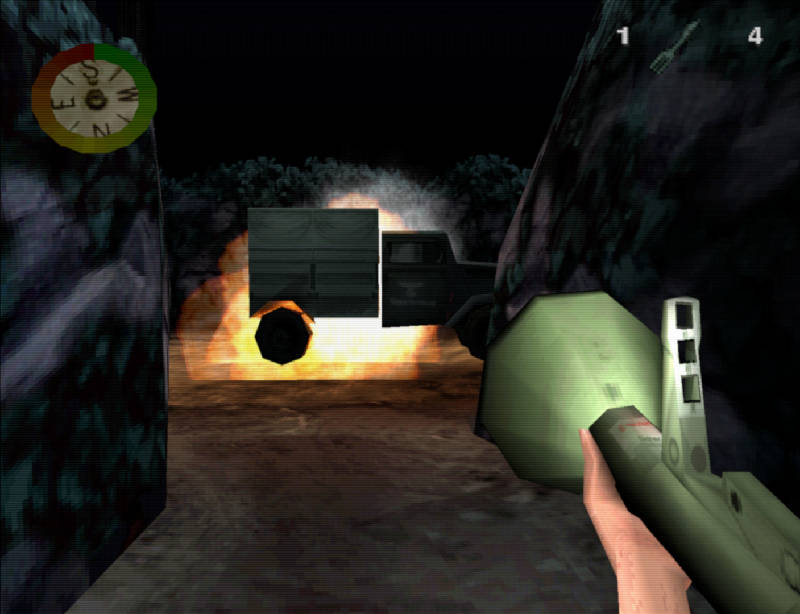
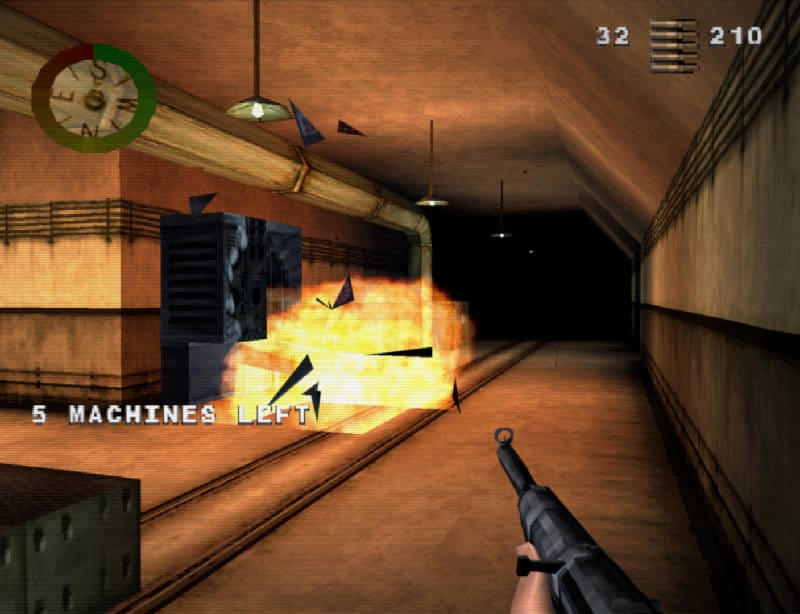
Let’s talk gameplay. If you’ve played the first Medal of Honor on PS1, you’re going to feel right at home here for better or worse. Controls and features were great for the time, but from the modern perspective it’s hard to get past some elements that feel lacking. First and foremost among these is some really shoddy aiming. I’ll tell you right now, the crosshairs in this game are useless at best and actively/infuriatingly inaccurate at worst. This is naturally much more pronounced with fully automatic weapons, but typically more modern FPS make it so automatic weapons become increasingly more inaccurate, the longer you keep the trigger held. This is a fair concession to some degree of realism and encourages burst shooting rather than keeping the trigger mashed down at all times. But here there’s no ‘inaccuracy curve’. Automatic weapons are inaccurate at all times regardless of how you use them, and it’s made all the more conspicuous due to the fact that these are overwhelmingly the most commonly used firearms in the game. Another lacking aspect is that you can’t ‘cook’ your grenades, by which I mean you can’t pull the pin, and delay your throw in order to shorten the time between the release and the explosion. This makes the grenades all but useless due to the fact that enemy soldiers are quick to take cover and/or to throw them back at you. Aside from some qualms with weapon usage though the game controls well enough. Movement is smooth, controls are well laid out, etc.
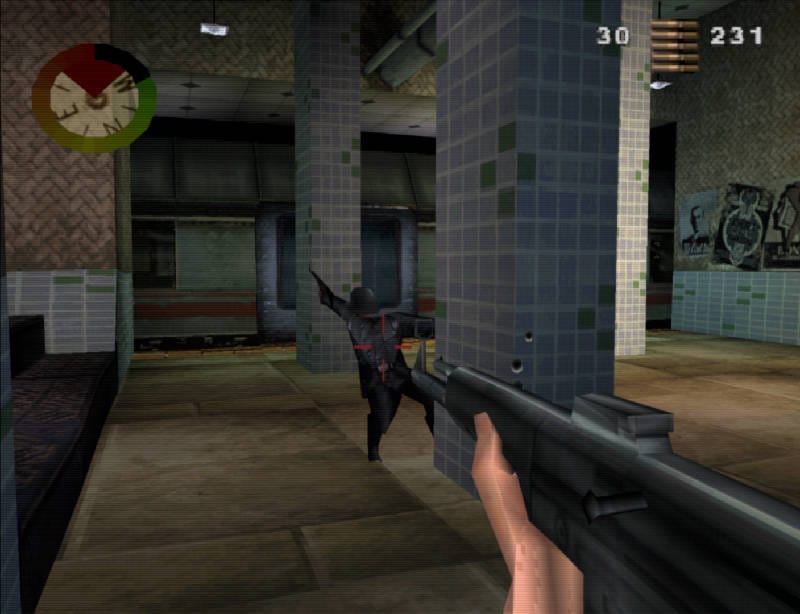
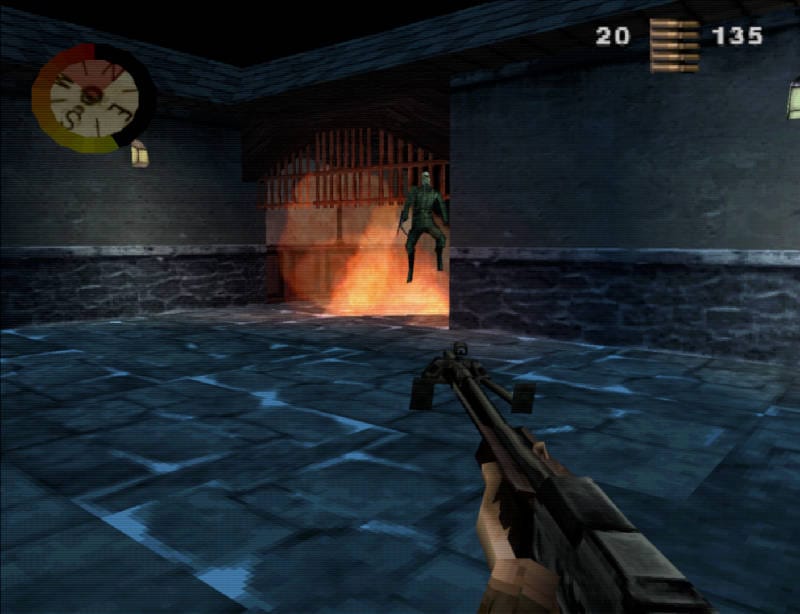
The graphics are pretty good for PS1 era … meaning they’re still going to look like a chunky, low-poly count, low draw distance nightmare to the uninitiated. But again, they’re pretty good for their time. I’ve saved the best for last though as I need to make special mention of the music which is easily the highlight of the game for me. At one point one of my kids walked by and asked if I was playing Batman. It hadn’t occurred to me at all, but there really is a bit of a Danny Elfman-esque quality to some of these tracks (and I mean that as high praise indeed). Likewise there’s a certain John Williams-like grandiosity at play here which makes sense given the Dreamworks Interactive/Spielberg pedigree. But rather than continuing to make comparisons to other composers, here we are talking about Michael Giacchino who has won Emmys (Lost), Grammys (Ratatouille and Up), and Oscars (Up) for his work in other media. So I don’t want to indicate that his work here is any way derivative … it’s just really good. So good in fact that Medal of Honor: Underground also won awards for Outstanding Sound Design and Outstanding Original Music Composition at the Academy of Interactive Arts & Sciences Fourth Interactive Achievement Awards (in 2000). Just a few more awards to add to the overflowing Giacchino trophy case I guess, but richly deserved all the same.
In closing I’ll repeat some familiar advice I give for games of this generation. Medal of Honor: Underground is a pretty great game if you can get past some of the quirks of its era. Modern shooters will inevitably feel better than this game, but MoHU was one of the important stop overs in the development of that genre. Even if you can’t get past the signs of age though, it’s worth checking out for the music alone which not only fits perfectly with the game but stands on its own as a statement of quality rousing orchestral composition. Recommended for FPS genre historians and orchestral music lovers.
* Medal of Honor: Underground does not feature any sort of beach storming segment … so your metaphor is poorly thought out null. Geez!
Leave a Reply